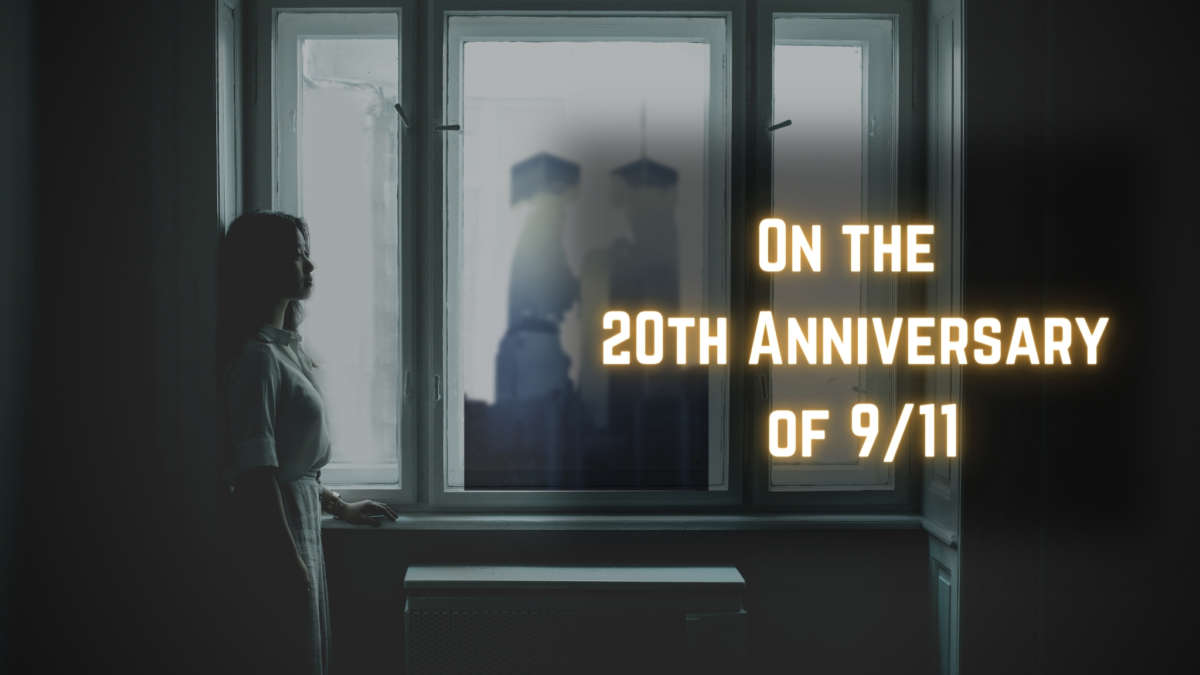It’s the 20th Anniversary of 9/11.
I asked three coworkers for their memories of the day to gather and learn from the experiences of those too close for comfort. Their replies indeed discomforted me — something I had steeled myself for and invited in — in a very important and powerful way. It’s humbling and a high honor. I believe you’ll appreciate them, too.
Jim Alkon provided the switch when it sank in: “It was my second day at a new job, where I was head of a department. One of the employees, who was new to me, came running in saying a plane had crashed into the World Trade Tower. I hadn’t figured out the true significance yet and the idea of terrorism hadn’t entered my mind. Besides, I had so much to do at the new job I couldn’t be bothered. When we got word of the second plane hitting, that all changed. My first thought was to contact my wife and figure out what was going on at my daughter’s school and get her home safely.”
Cynthia Conrad had a heartwrenching and visceral reaction: “There came a clip of what looked like debris falling off one of the buildings, which we were horrified to realize were actually people jumping out of windows high above, tiny figures of men and women in business suits, alone or clutching each other, no longer hoping for rescue or escape, choosing the means of their deaths as the flames drove up the sides of the building. By the time the second tower fell, so did I, on my knees, cognizant of all the lives that were being obliterated in that moment and struck by the terrible symmetry of twin buildings now reduced to plumes of flames and smoke, dust and metal. I don’t remember much about the days and weeks that followed, just an empty, hollowed-out feeling of shellshock and endless conversations with friends, family, neighbors, even strangers.”
Lastly, Barb Wilkov offers her provocative story: “I was living in Greenwich, CT, about 30 miles from NYC and had an appointment that morning. I decided to turn on the TV first. I didn’t normally do that. There was breaking news that I stopped to watch … My first thought was of my older sister, Marcy, who worked at the World Trade Center and was there for the bombing of the buildings in 1993. She didn’t work in one of the Twin Towers but in Three World Financial Center, which was right next door. It turns out that my mom had called my sister early that morning because it was a primary election day in NYC and my mom wanted to tell her something she had heard about the election. That phone call made my sister late for work. At one point later on, we tried to determine where my sister would have been if our mom hadn’t called her and likely she would have just been coming out of the subway by the buildings when the planes hit.”
For more, and more in-depth, perspectives, try reading these books. They don’t just tell a cut-and-dry story, but they are all part of our collective American story, our true and traumatic history. There’s something for everyone, whether you want the inspirational recovery, the minute-by-minute event recall or the hidden intel from those who glimpsed behind the political curtain. Honor those who died, those who lost someone and those who lived through it by reflecting upon the event that also impacted you — whether you realize it or not.
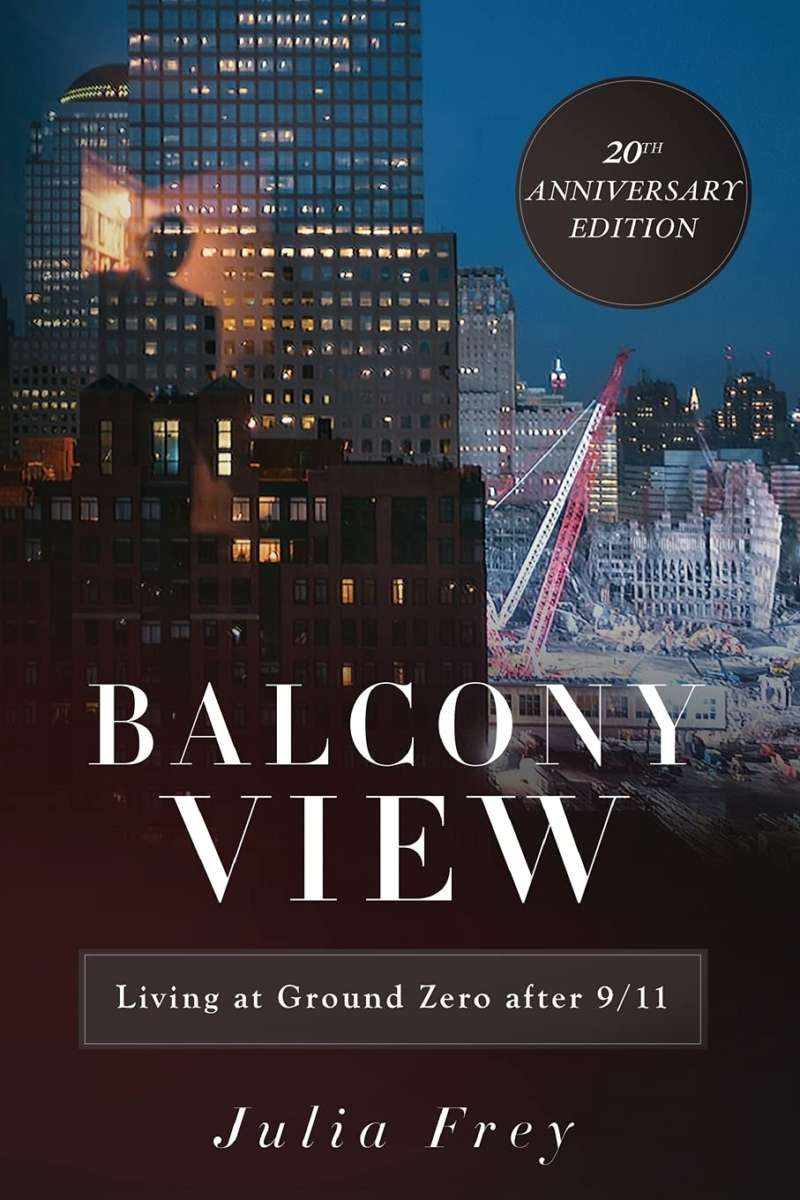
Balcony View: Living at Ground Zero After 9/11 by Julia Frey
What if the world caved in and you found yourself caring for a dying loved one? Julia Frey’s diary begins on September 11, 2001, when she and her terminally ill husband, novelist Ronald Sukenick, flee their apartment building in the shadow of the crumbling towers. Hours later they pick their way back through the wreckage, and our author resolves to write it all down. In the process, she determines that their world has utterly changed, yet finally, isn’t much changed at all. “Our previous problems didn’t magically disappear. They were just waiting for us to come back in the door.” This powerful narrative describes intense personal and physical trauma in the aftermath of 9/11. Her journal of their life during and after the 2001 terrorist attacks became this, her second book, which was a finalist for a 2012 Indie Discovery Award for memoir.
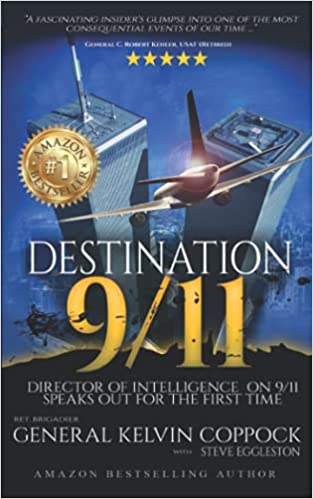
Destination 9/11: Director of Intelligence on 9/11 Speaks Out for the First Time by Kelvin Coppock and Steve Eggleston
This book features, for the very first time, the experiences and thoughts on the catastrophe from the Director of Intelligence at the time. In their new book, Coppock and Eggleston share insights into the minutes, hours, days and years leading up to the terrible climax. Read the General’s new but previously unheard eyewitness account through the skillful weaving of three concurring narratives: insights about the Cold War, conflict politics of the Middle East and an unvarnished first-hand account of one man in power on the day that reminds us of what it feels like to be utterly powerless. One Amazon reviewer espouses, “I had been waiting years to have a book of this magnitude written.”
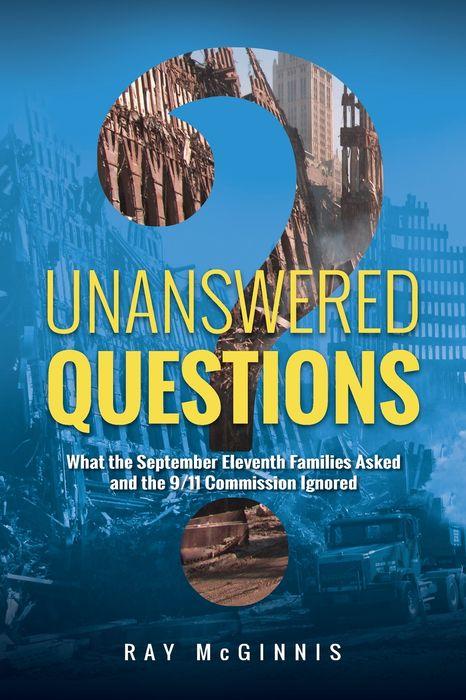
Unanswered Questions: What the September Eleventh Families Asked and the 9/11 Commission Ignored by Ray McGinnis
The attacks impacted everyone, but some more immediately and directly than others. Understanding the worst sufferers’ stories and the activism that followed informs our post-9/11 reality. This brand-new volume meticulously presents the real stories of the hardest-hit families. Published today on the 20th anniversary of, it sheds new light by focusing on the families’ pursuit of the truth. Advance praise from The Columbia Review of Books & Film says, “The events of 9/11 will never be forgotten. Not only the families but the world will remember that fateful day and the tragic loss of lives. This book is not only a voice for those who have been left behind, but also an accurately researched account for those who believe the cover-up will be exposed, and the truth revealed one day.”
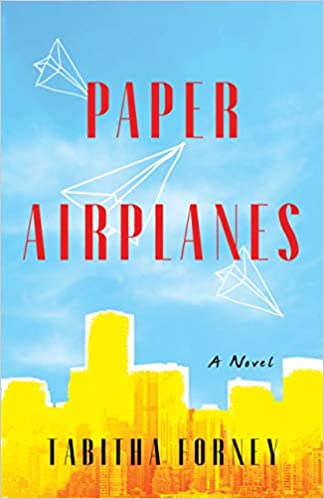
Paper Airplanes by Tabitha Forney
This book came out just a few days ago, so you can be one of the first to read about a young woman who loses it all on this day of days. Erin O’Connor has wonderful friends, an awesome career, a loving husband and dreams of even better things on the horizon. Then it all comes, literally, crashing down. Erin is chilling at the beach when news breaks that a plane has crashed into the World Trade Center … where her husband works on the 101st floor. Erin frantically and desperately searches Ground Zero and the surrounding crisis centers for any trace of her beloved Daniel but finds nothing. She must resign herself to his death and tries to move on, but in her grueling grief, doesn’t do it perfectly. Forget happy; is there even plain old life after happily ever after? Find out for yourself.

9/11 Survivors’ Stories: Midwest Memories by American Pride Inc.
Eight survivors share their varied recollections, and, for a little something different, they’re not New Yorkers. Midwesterners take the stage here: six who experienced the horror inflicted on the World Trade Center and two who were at the Pentagon. Each expresses highly unique insights, and for more unique insights, there is also a chapter with a perspective from Willow House staff, a regional therapeutic counseling center that helped victims’ families and many of the survivors in the area. American Pride, the publisher of the book, is a non-partisan non-profit offering conscientious, timely and professional presentations, speeches and learning events to engage students and the general public with first-person stories of overcoming challenges relating to the attacks. Their mission states, “Our special purpose is to help people appreciate and support First Responders and the U.S. Military.”

12 Steps to Mind-Blowing Happiness by Trish Ahjel Roberts
This 9/11 survivor has done something courageous; she turned all the trauma and tragedy in her life into a career of healing others. Despite having worked in the now-destroyed World Trade Center on the very day, which is quite enough real-life horror for anyone, she also has lived through crisis after personal crisis of childhood sexual assault, institutional racism, domestic violence, divorce and single parenting. Now, the transformed Roberts is a self-actualization coach and happiness expert. “One of the most common misconceptions about happiness is that it’s based on your situation,” she explained. “The trick is learning to find joy even when things aren’t going your way. That could be when the job, home, or relationship isn’t working out. For the country, that could be when we are experiencing trauma as a nation or not living up to our own ideals as Americans.”
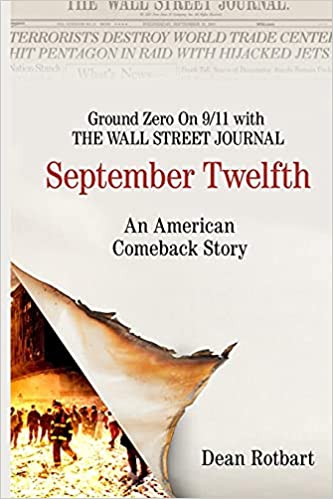
September Twelfth: An American Comeback Story by Dean Rotbart
This new book is about the newspaper industry, a font of many fast-paced and dramatic stories, some of them all the more engaging because they were absolutely real journalism. This one’s all too real, but in the end, it’s uplifting in the face of that terrifying collapse. The Wall Street Journal staff came together on 9/11 when their main newsroom — located just across the street from the World Trade Center — became a disaster scene. “September 11 is a tragic day in the history of the United States. But it is also the source of a legion of inspiring comeback stories,” says award-winning journalist Dean Rotbart, whose book, coinciding mightily with the 20th anniversary, is as eye-catching an account as anything in today’s own breaking news. “I wrote the book because I believe it reflects the indomitable spirit of America and Americans,” Rotbart says. “The Journal’s response on 9/11 offers lessons for any organization, business, or individual who is confronted with an unexpected, significant setback and can either rebound or quit.”

